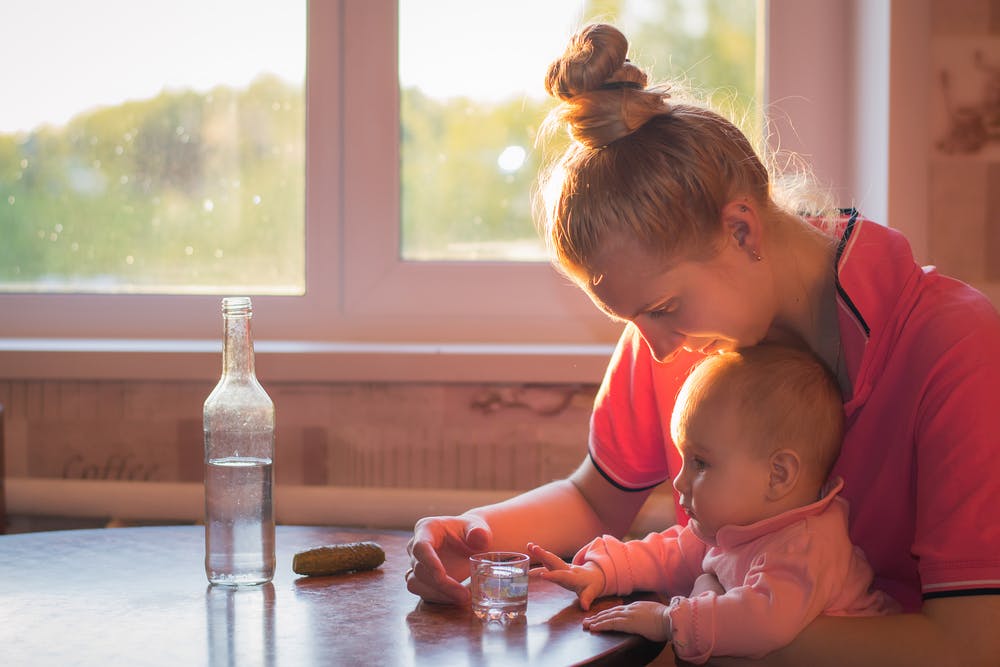NSPCC Scheme Cuts Children at Risk of Abuse From Parents with Substance Misuse Issues By Almost One Third
updated on Mar 6, 2018

Figures reveal parents with diagnosed clinical depression or anxiety issues among those who most benefit from the scheme.
As part of the NSPCC’s strategy launched in 2016 to make five million children safter over the course of five years, the Parents Under Pressure (PUP) programme was launched. The programme aims to prevent child abuse in families facing adversity, including substance misuse of drugs or alcohol.
Concerns over child abuse have increased in the past few years, with recent estimated by the Association of Directors of Children’s Services reporting over a 60 per cent increase in children aged one and under with a child protection plan in place.
In the England alone, an estimated 79,000 babies live with one or more parents who are classified as a problematic drinker, while around 26,000 live with a dependant drinker. 43,000 babies within the same age bracket are thought to be living with a parent who has used an illegal drug in the past year, while 16,500 with a parent who has used Class A drugs within the past 12 months.
The potential impact on vulnerable young people is staggering. According to report released in March, the NSPCC alone have seen a 30 per cent rise in emails and calls over the past year from concerned individuals regarding parents with drug and alcohol dependence, and their potential risk to their children.
However, it is worth noting that not all children whose parents experience substance misuse problems are at risk of harm. While parents who misuse substances or drink may find it challenging to care for their children, substance misuse is often only one of a number of problems faced by these families. Parents enrolled in PUP often experience a range of other challenges alongside substance misuse, including domestic abuse; financial problems; mental health or relationship issues. These cumulative issues often present the most risk to the child.
The NSPCC scheme, PUP, which aims to cut children at risk of abuse from parents, has reportedly seen a reduction in the number of children on a child protection plan reduced by a third upon parental completion of the 20 week course. While this may sound positive, around half of the cases observed within the recent study did not see a change in the safeguarding status of the children in question by the end of the programme.
Of those who took part in the study, one in seven parents experienced an increase in surveillance from children’s services, with the number of children removed from their parents care rising.
The findings, published in a March 2018 report, suggest parents can make positive changes when given the right support and guidance. The 20 week PUP programme aims to help families become happier, reduce risks of abuse, and help parents manage the stress and pressure of looking after young children (eight and younger) whilst managing their substance abuse.
Amongst other areas, parents are advised on how to tackle children’s challenging behaviour and how to managing their own emotions. Mindfulness is also taught to help boost parents confidence levels, overall happiness, as well as to refuse stress and anxiety.
Key findings by the University of Warwick revealed parents who took part in PUP exhibited more positive changes than the control group who received the standard treatment for their drug or alcohol problems (varying by local areas and services). One third of parents showed a significant reduction in risk of child abuse, compared in those who received standard treatment showing an increased risk of child abuse over time. Control group participants showed a significant increase in the number of children under a child protection plan with numbers almost doubling.
Parents who completed the course also showed a significant improvement in their own wellbeing six months after the course. Participants who had a diagnosis of clinical depression or anxiety prior to the study showed the greatest improvements in emotional wellbeing, with many reporting they felt more confident using new mindfulness strategies as part of their parenting.

